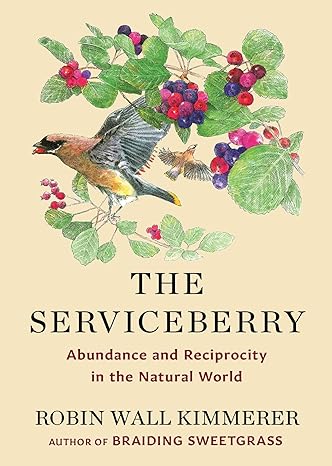Introducing Robin Wall Kimmerer
Introducing one of the most significant writers and speakers on the aspect of reciprocity and nature. Her work has deeply impacted my life. Get to know her—you will not regret it. Please consider her book Braiding Sweetgrass (A New York Times Bestseller; A Washington Post Bestseller; A Los Angeles Times Bestseller).
View her books here.Robin Wall Kimmerer is an esteemed author, scientist, decorated professor, and enrolled member of the Citizen Potawatomi Nation. She blends her expertise as a botanist with her passion for indigenous wisdom, offering a unique perspective on the relationship between humans and the natural world.
She is the author of The Serviceberry: Abundance and Reciprocity in the Natural World, Braiding Sweetgrass: Indigenous Wisdom, Scientific Knowledge and the Teachings of Plants, and Gathering Moss: A Natural and Cultural History of Mosses. She lives in Syracuse, New York, where she is a SUNY Distinguished Teaching Professor of Environmental Biology, and the founder and director of the Center for Native Peoples and the Environment.
Robin is also a Distinguished Teaching Professor and the Director of the Center for Native Peoples and the Environment at SUNY College of Environmental Science and Forestry. Read more here.
Reflections on Reciprocity
In the past, human relationships with nature have often been unidirectional: humans take from nature and gain from nature yet have little or no responsibility or accountability to sustain it.
Reciprocity ideas have always been emphasized by Indigenous peoples, and now are pushing back against a unidirectional nature-people relationship rooted in human supremacy. Robin Wall Kimmerer (Potawatomi) has raised concerns as to how nature and land have been diluted to human property. She contends:
“In a culture of gratitude, everyone knows that gifts will follow the circle of reciprocity and flow back to you again.” (Kimmerer, 2013)
In the magazine Human-Nature, Robin Wall Kimmerer writes:
We are showered every day with the gifts of the Earth, gifts we have neither earned nor paid for: air to breathe, nurturing rain, black soil, berries and honeybees, the tree that became this page, a bag of rice and the exuberance of a field of goldenrod and asters at full bloom.
Though the Earth provides us with all that we need, we have created a consumption-driven economy that asks, “What more can we take from the Earth?” and almost never “What does the Earth ask of us in return?”
The premise of Earth asking something of us makes our hearts swell. It celebrates the implicit recognition of the Earth’s animacy—that the living planet has the capacity to ask something of us and that we have the capacity to respond. We are honored by the request. It lets us know that we belong.
For much of human history, we lived in cultures that understood the covenant of reciprocity: that for the Earth to stay in balance, for the gifts to continue to flow, we must give back in equal measure for what we take.
Learn more about her books.